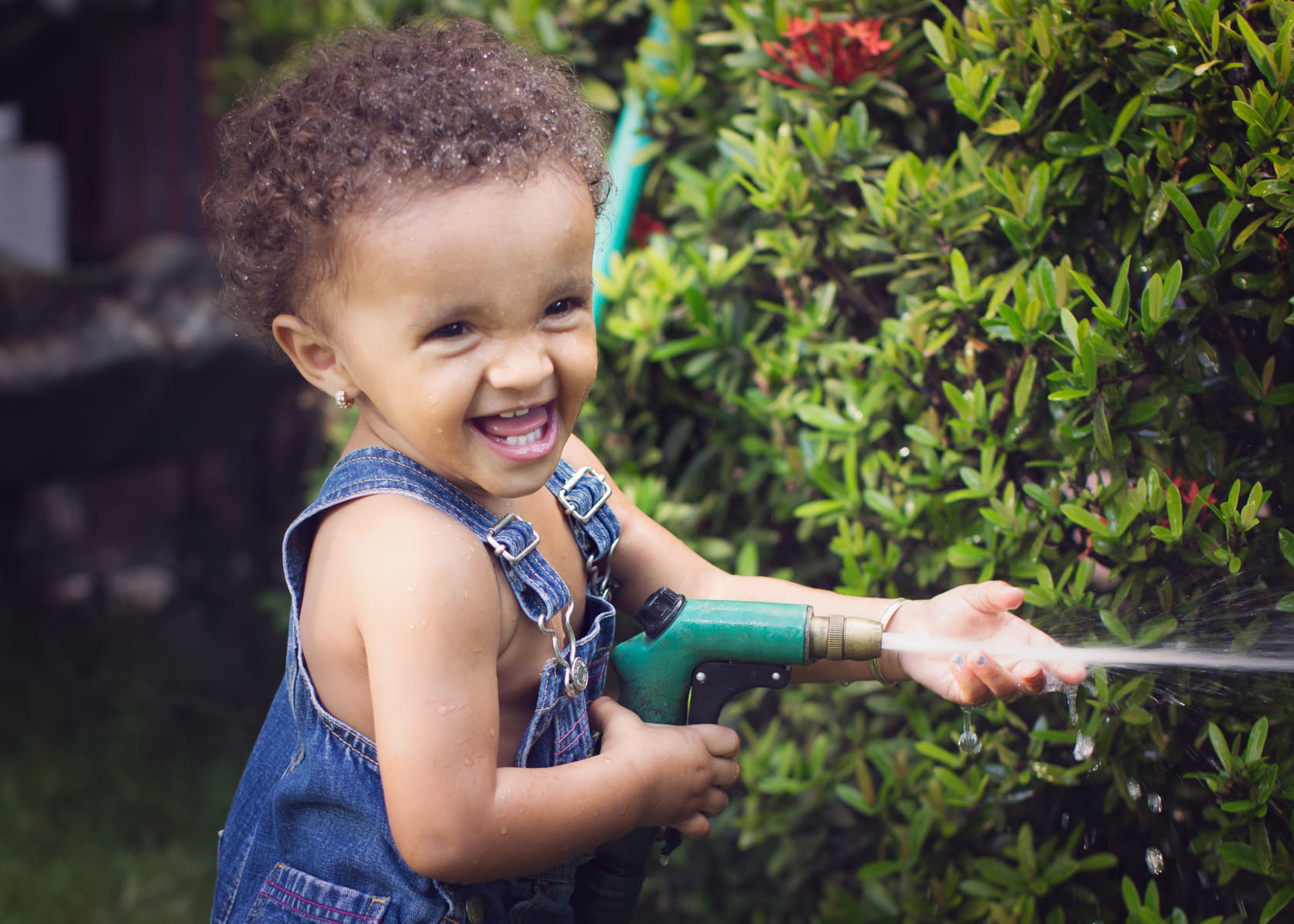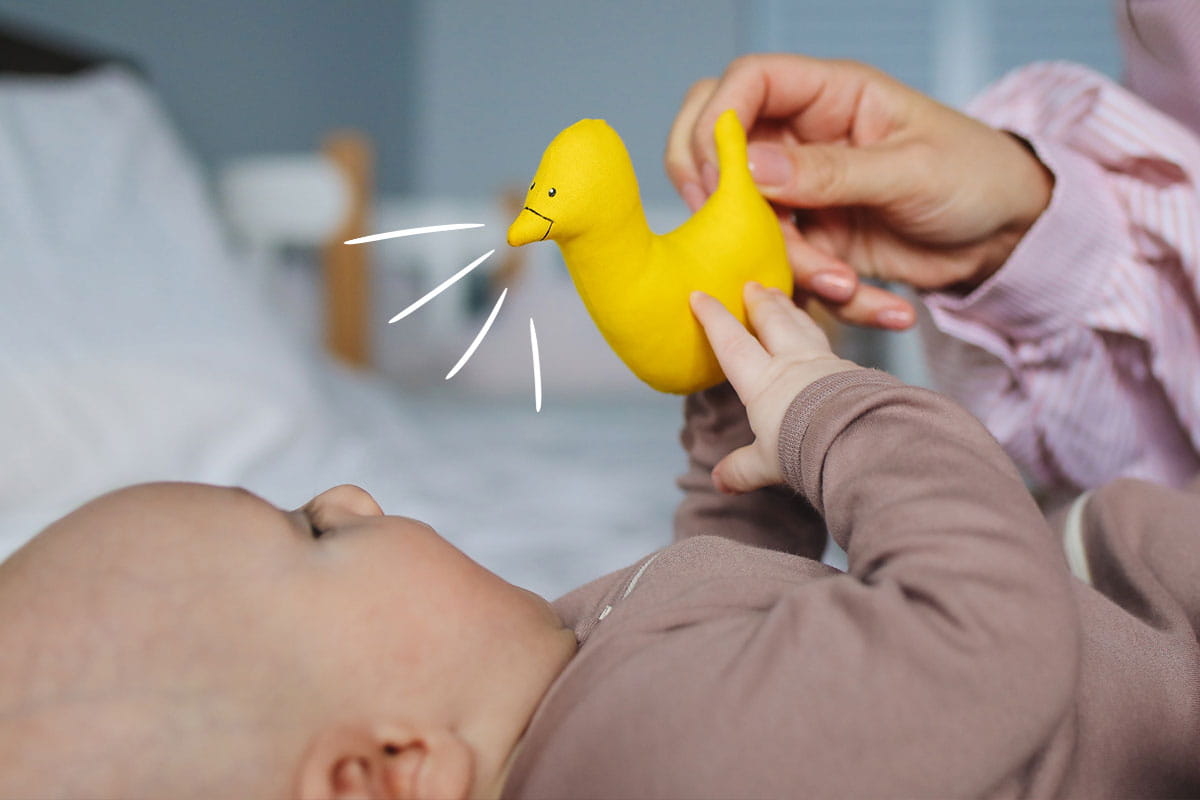Summer Smarts! 10 Cool Learning Activities for Families On the Go

Ah, those care-free days of summer, the season of swimsuits, vacations, picnics…and the summer slide—and we’re not talking about the slide at the park.
Research spanning 100 years shows school-aged children typically score lower on tests at the end of summer that they do on the same tests at the beginning. But families can help combat the summer slide by folding learning opportunities into trips to the beach, the park, or the ballpark.
Here are 10 ideas for building learning into the everyday fun activities that make summer children’s very best time of the year!
1. At the beach, learn to read the tide chart.
Heading to the beach? Reading the tide chart gives your child a chance to practice recognizing numbers and time. Practice opposites, like morning and night, high and low, in and out. Mark your guesses for high tide in the sand.
2. At the airport, look for things that move.
People movers, baggage carousels, escalators, rolling suitcases, airplanes, oh my! Keep your little one learning and entertained at the airport by encouraging her to identify things that move.
3. At the library, discover her taste in books.
The bookish folks at Scholastic report that reading is key to reversing summer slide for school-age learners. To keep their interest up, allow your young reader to pick her own books and encourage her to explore new stories and subject matter at your local library.
4. At the ballpark, learn numbers.
Have your child count change for popcorn, count bases or the number of players on the field. Encourage your child to call out the numbers as he reads them on the backs of players’ uniforms. Ask him to predict which base the player will run to next. This pattern recognition builds math skills.
5. At the amusement park, encourage scientific observation.
What will the roller coaster do? How does the Ferris wheel move? Asking how and “what” questions prompt children to think, reason, and observe—and the amusement park is the perfect place to support such scientific thought. You can sharpen their skills by inviting them to test their ideas: Will the bumper car stop if we run into your brother’s car? Let’s try it!
6. Play with the garden hose, learn about states of matter.
Liquid, solid, gas: Water has much to teach, and summer is full of opportunities to talk about it, from an ice-filled glass of lemonade, to a run through the sprinkler, to the cumulous clouds in the sky, Invite your child to discover how liquid collects in puddles, falls in drops, runs in streams, and why wet bodies become dry in the sun.
7. At the park, explore shapes.
Turn a regular day at the park into a scavengerhunt for shapes in the natural environment. Identify trees shaped like triangles, find the circle in the tire swing, or trace the rectangle shape of a gate. Encourage your child to call out shapes as she sees them.
8. At the farmers’ market, meet your community.
As she explores colorful vegetables or weighs cartons of raspberries encourage your child to ask people in her community simple questions like, Are there carrots today? Or you can take the lead by striking up a conversation to learn more about local farms. Read more about raising a community-minded child.
9. On a road trip, practice numbers, colors, and alphabet letters.
While you watch the world out the window, search for numbers and colors. In fact, you could even make a few car Bingo cards before you embark on road trip: Look for anything yellow, like flowers or cars, or numbers and letters on license plates, billboards, and signs.
10. At the pool, teach water safety.
Asking open-questions helps your child to internalize safety lessons and makes both of you more confident in his abilities. Ask questions like, Why do you think it is important to walk and not run around the pool? Not only does that spark conversation, it helps your child understand the reason behind the pool rules.
But the very best thing that you can do to prevent the summer slide happens at home: read together.
This summer, challenge yourself to spend 20 minutes every day with your child and a book. Talk about the stories and pictures. Ask your child questions. Engaged reading is good for all ages!
You can also consider signing your child up for a summer program that includes focused learning. KinderCare’s summer programs are great for this, our new summer curriculum themes are handpicked for fun and specifically designed to prevent summer slide. Find out more about Spectacular Science and our other summer programs here.





